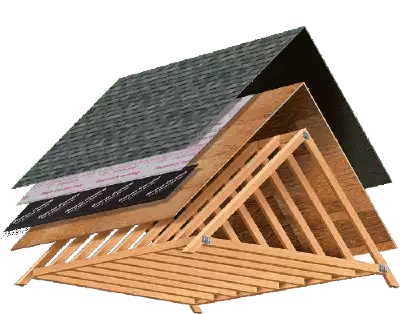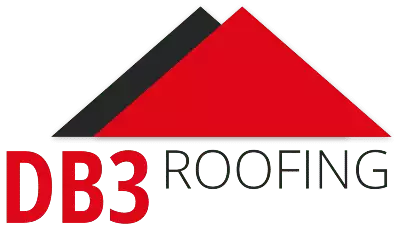
The roof of your house is just as important as the foundation, which is why it should be constructed of quality materials. However, the reality is that not all roofing materials are equally up to the task. So, choosing the most appropriate roofing material for your house is essential based on several criteria. This blog post considers specifically how long the various roofing materials last.
It must be noted that we assume the roof is installed by a qualified roofing contractor familiar with the materials. This aspect is crucial and dramatically influences any roof’s longevity. With DB3 Roofing, you are assured that we are familiar with all the types of residential roofing materials discussed below.
Asphalt Shingles
Discussing asphalt shingles under their own heading is a necessity because it’s the most common roofing material used in the continental USA. As such, this economy of scale means that asphalt shingles are relatively inexpensive, and most roofing contractors can work with them. New types of roofing shingles are infused with reflective granules, which creates an SRI of 29 and is well above Energy Star recommendations for an energy-efficient roof.
The downside of asphalt shingles is, unfortunately, the lack of longevity compared to other roofing materials. Asphalt shingles will last only 15 to 20 years in areas with a high sun index before requiring expert replacement. In more northern areas, the lifespan is typically 25 to 30 years.
Standing Seam Metal Sheets
If all you want is a durable and robust roof, then it is hard to beat standing seam metal sheets. As the name says, it is simply sheets of metal placed on top of the roof trusses. In areas where the roof is not exposed to corrosive agents, like salty moisture from the sea, a good metal roof will last 40 to 60 years and even longer.
Metal shingles are an alternative to metal sheeting but with the same longevity. The benefit of metal shingles lies in the manufacturers’ ability to mimic the look of other types of roofing materials, including traditional asphalt, wood and clay shingles, shakes and tiles.
Clay Tiles
The most expensive traditional roofing material is certainly clay tiles. However, there are roofs several hundred years old made from such clay tiles in Europe. The primary benefit of clay is that it’s virtually impervious to the natural onslaughts endured by a roof, even those at the coast. Clay is also highly energy conscious, resulting in cooler homes in the warm climate regions of the country when compared to other types of residential roofs. As said, a clay tile roof lasts exceedingly long, but it is also very expensive and requires an experienced contractor like DB3 Roofing to install correctly.
Other Options for Roofing Materials
Asphalt shingles, metal sheets and clay tiles are not the only options for residential roofing but are the most common. The other materials that warrant consideration include:
- Concrete tiles are similar to clay tiles but typically last only 50 years under normal conditions.
- Wood shingles are very decorative, but the environmental range where they can be used is very limited. Lifespan is about 60 years in dry climates but only 15 years under damp conditions.
- Slate shingles are made from real stone, which means they will last several centuries unless damaged somehow. An expert roofing contractor should be able to re-use the same slate shingles repeatedly when replacing sagged trusses.
The use of acrylic and silicone coatings should also be mentioned as a viable method to increase the longevity of an existing roof. The coating is sprayed onto the roofing material in situ and forms a durable and tough barrier that can extend the life of an aging shingle roof by five or more years.
About DB3 Roofing
We are licensed and bonded roofing contractors working in Texas and adjacent states with experience in all the common residential roofing materials mentioned above for new roofs, repairs to damaged roofs and the complete replacement of old roofs.
Contact us if you need help in deciding which roofing material is best in the long run for your house.

